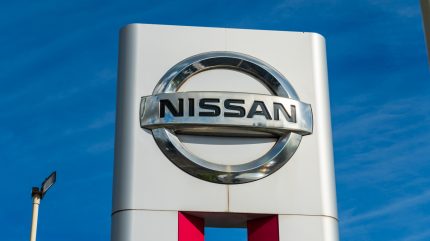
Nissan Motor will reduce production of its Rogue SUV in Japan because of a constrained supply of semiconductors sourced from Dutch company Nexperia, Reuters reported citing unnamed sources.
The cut will amount to roughly 900 vehicles in the week beginning 10 November at Nissan’s Kyushu plant in the country’s southwest.

Discover B2B Marketing That Performs
Combine business intelligence and editorial excellence to reach engaged professionals across 36 leading media platforms.
The Japanese company is also reassessing production plans for the week of 17 November as parts containing Nexperia chips remain scarce.
Marketed as the X-Trail in Japan and the UK, the Rogue was Nissan’s best‑selling model in the US last year, with nearly 246,000 units sold.
The model is also manufactured at Nissan’s Smyrna facility in Tennessee.
In a statement to Reuters, Nissan described the adjustments for the week of 10 November as “small‑scale production adjustments” affecting several hundred vehicles at both the Kyushu plant and the Oppama plant south of Tokyo, where the Note compact is produced.
The automaker said conditions were fluid and that it was monitoring the situation closely, adding: “Once supply stabilises, we will recover quickly and ensure any impact on customer deliveries is minimised.”
More information will be provided on 6 November with second‑quarter results, it added.
Another Kyushu plant operated by subsidiary Nissan Shatai, which produces SUVs including the Patrol, was not affected at present.
Last week, the automaker warned that supply‑chain risks, encompassing those related to Nexperia, would be its principal headwind in the second half of the fiscal year.
Chief performance officer Guillaume Cartier previously stated that Nissan had sufficient chip supply through the first week of November.
The current squeeze followed the Dutch government’s move in September to take control of Nexperia over concerns about potential technology transfers to its Chinese parent, Wingtech. US has highlighted the step as a security risk.
China subsequently banned exports of Nexperia products, though it indicated it would consider exemptions; its commerce ministry urged the Netherlands to “stop interfering” in internal affairs of Nexperia.
Automakers across the globe have been grappling with disruptions tied to Nexperia, which have affected output and, in some cases, led to staff furloughs.
Honda halted production at a Mexican plant last week and altered operations in the US and Canada.






